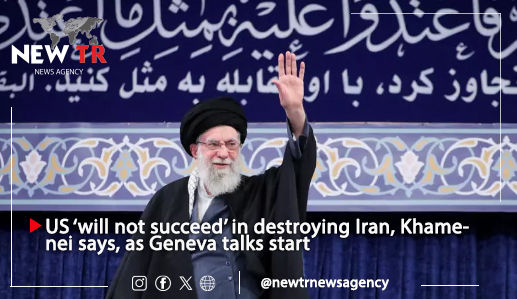Rare show of unity at UN Security Council in support of fair vaccine distribution
- Feb 18, 2021
- 3 min read

UN Secretary-General Antonio Guterres opened a high-level meeting of the Security Council on Wednesday by strongly criticizing the “wildly uneven and unfair” distribution of COVID-19 vaccinations.
“Just 10 countries have administered 75 per cent of all COVID-19 vaccines,” he said. “Meanwhile, more than 130 countries have not received a single dose. Those affected by conflict and insecurity are at particular risk of being left behind.”
Vaccine equity is “the biggest moral test before the global community,” he added.
Guterres called on the G20, the world’s richest countries, to set up an emergency task force to create a global vaccination plan with input from scientists, vaccine manufacturers, authorities with the power to ensure fair distribution of vaccines, and those who can fund the plan. He said this task force should have the capacity “to mobilize the pharmaceutical companies and key industry and logistics actors.”
The UN chief warned that if the virus is allowed to spread “like wildfire in the Global South” it will continue to mutate into new and potentially more transmissible and deadly variants, which might reduce the effectiveness of vaccines and therapies. This could lead to a resurgence of the virus in the Global North and delay economic recovery, he said.
Thirteen ministers addressed the virtual meeting, which was the first Security Council session organized specifically to discuss COVID-19 vaccines. It was convened by Dominic Raab, the UK’s foreign secretary, whose country holds the presidency of the council this month.
He proposed a new resolution calling for a temporary global ceasefire and a coordinated effort to distribute and administer the vaccine in all locations, “including in the hardest to reach places, including places of conflict and other types of insecurity.”
He added: “Ceasefires have been used to vaccinate the most vulnerable communities in the past. There is no reason we can’t do this.”
In response to the pandemic, and an appeal by Guterres on March 23 last year for a global ceasefire, the Security Council in July adopted Resolution 2532. This called for “a general and immediate cessation of hostilities in all situations on its (the Security Council’s) agenda” and urged all parties engaged in armed conflicts, including those not on the council’s agenda, to “engage immediately in a durable humanitarian pause for at least 90 consecutive days.”
Raab said the council needs to take further action “to call for ceasefires specifically to enable COVID vaccinations to be carried out in those areas so badly affected by conflict.”
US Secretary of State Antony Blinken told the council that the Biden administration “will work with our partners across the globe to expand manufacturing and distribution capacity and to increase access, including to marginalized populations.”
President Joe Biden restored US ties with the World Health Organization after his predecessor, Donald Trump, ended the relationship. Blinken said that by the end of this month the US will pay more $200 million in assessed and current obligations to the UN agency, but added that Washington will seek to reform it “to defeat COVID-19 and prevent future pandemics.”
The US also plans to provide “significant financial support” to COVAX — an international initiative, led by the Global Alliance for Vaccines and Immunization, that aims to ensure all countries have fair access to vaccines — and will work to strengthen other multilateral initiatives as part of the global response to COVID-19, Blinken said.
Chinese Foreign Minister Wang Yi criticized the widening “immunity divide” among nations that is emerging. He urged the world to “come together to reject ‘vaccine nationalism,’ promote fair and equitable distribution of vaccines and, in particular, make them accessible and affordable for developing countries, including those in conflict.”
Subrahmanyam Jaishankar, India’s minister of external affairs, said that any hoarding of “superfluous doses will defeat our efforts toward attaining collective health security.”
He also warned that the potential costs of unfair vaccine distribution are huge, as he quoted a prediction by the International Chamber of Commerce that a failure by the international community to address vaccine inequity could cost the global economy as much as $9.2 trillion.
Mexican Foreign Minister Marcelo Ebrard said that if current trends persist, developing nations will not have access to vaccines until the middle of 2023. He called for the acceleration of the COVAX initiative, and for an end to the “undue hoarding” and “monopolization of vaccines” by some countries.
UK authorities said that more than 160 million people are at risk of being excluded from vaccination efforts because they live in countries mired in conflict and instability, including Yemen, Syria, South Sudan, Somalia and Ethiopia.




Comments